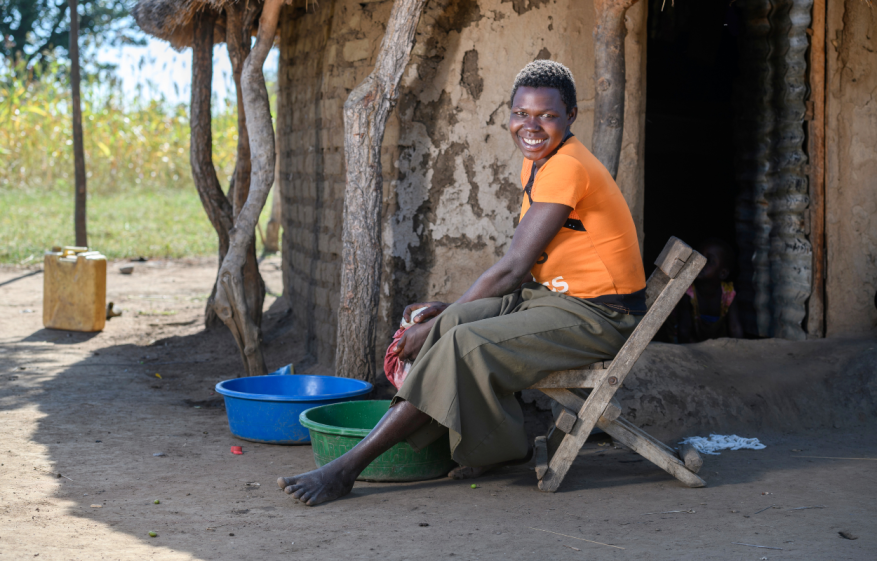Norah Alupo from Teso, Uganda, pictured.
World Refugee Day takes place on June 20th. This year’s theme is ‘Hope Away From Home.’ World Refugee Day is an important opportunity to promote empathy and understanding of the plight of refugees across the world.
Last year, the UNHCR announced that more than 100 million people worldwide have now been forcibly displaced. The climate crisis is a major driver in forcing people from their homes and livelihoods.
In East Africa, the ongoing drought in the region – the worst in decades -– has caused severe food insecurity. About 16.3 million people have had to abandon their livelihoods and everything they know, to seek food, water, safety and shelter outside of their homelands.
The climate emergency is having the worst impact on some of those least responsible for its effects. Refugees, Internally Displaced People (IDPs) and stateless people are amongst those on the frontlines of climate change. Human-induced greenhouse gas emissions have warmed today’s climate by 1.2C compared with pre-industrial levels, driving below-average rainfall in eastern Africa, according to a study published last month by the World Weather Attribution group of Scientists.
Self Help Africa have several projects supporting refugees to build a brighter future for themselves and their families. Our Sustainable Livelihoods and inclusive Markets for Refugees (Sustain) project in Uganda is one of these. Uganda is home to 1.5 million refugees, one of the largest refugee populations in the world.
Sustain is supporting 1,000 displaced and marginalised people in Adjumani County in Uganda’s north-west. Susan Jua is one participant who has benefitted by receiving training, tools and iron rich beans to plant. Susan received 25kg of beans and harvested 200kg, most of which she sold. “Out of that money I used some for home consumption, started a small business and saved some in the Local Village, Savings & Loan Association (VSLA)” explains Susan.
Over 28 tons of iron rich beans were distributed along with 1,950 bags of orange sweet potato vines. Four Ecological Land Use Management (ELUM) Centres were set up and 40 VSLA’s established. This project, and others like it, have helped make farming a viable livelihood for refugees, providing them with knowledge and skills to empower themselves and build a brighter future.

